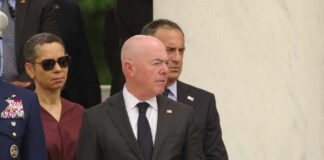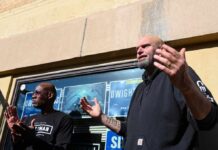
Elon Musk, the billionaire entrepreneur and head of X Corp, formerly known as Twitter, is pushing back against California’s Assembly Bill 587 (A.B. 587), a law requiring social media platforms to disclose their content moderation policies. Musk’s company filed a federal lawsuit against the state this week, arguing that the law infringes on its First Amendment rights to free speech.
At the heart of the dispute is California’s attempt to enforce transparency in the operations of social media platforms. Passed in September 2022, A.B. 587 compels companies like X to publish their policies on moderating hate speech, disinformation, harassment, and extremism. The law only targets companies making over $100 million in annual gross revenue. It allows for fines of up to $15,000 per day per violation.
— Brie Grey 🇺🇸 🔥❄️ (@brigrey1005) September 9, 2023
In its lawsuit, X Corp claims the “true intent” of the legislation is to force social media platforms to “eliminate” speech that the government deems problematic. “AB 587 violates X Corp.’s First Amendment right to not speak about controversial topics and to decide for itself what it will say or not say about these topics,” the suit reads. In short, the company argues that the law amounts to compelled speech, directly violating the U.S. Constitution and California’s state constitution.
However, Gov. Gavin Newsom (D) and other proponents of the bill assert it’s a necessary measure. “California will not stand by as social media is weaponized to spread hate and disinformation that threaten our communities and foundational values as a country,” said Newsom. Yet, one must question whether a state government should dictate how a private company manages its platform, particularly when that platform serves as a global town square for free speech.
The debate surrounding A.B. 587 doesn’t exist in a vacuum. Other critics, including tech industry groups and legal experts, have raised concerns about the First Amendment implications of the law. Even the satire site The Babylon Bee and podcaster Tim Pool have taken legal action against it.
Musk himself is a self-described “free speech absolutist,” stating that his purchase of the X platform was aimed at preserving it as a venue for unrestricted dialogue. Given that many Americans get their news and opinions from platforms like X, attempts by any government to influence such platforms should be scrutinized.
One of the law’s subtler impacts is the chilling effect it might have on speech. According to X, the legislation would likely force the company to “remove, demonetize, or deprioritize” content the state finds “undesirable or harmful.” Such a vague and subjective standard could lead to arbitrary enforcement and suppress diverse opinions, further polarizing an already divided society.

































